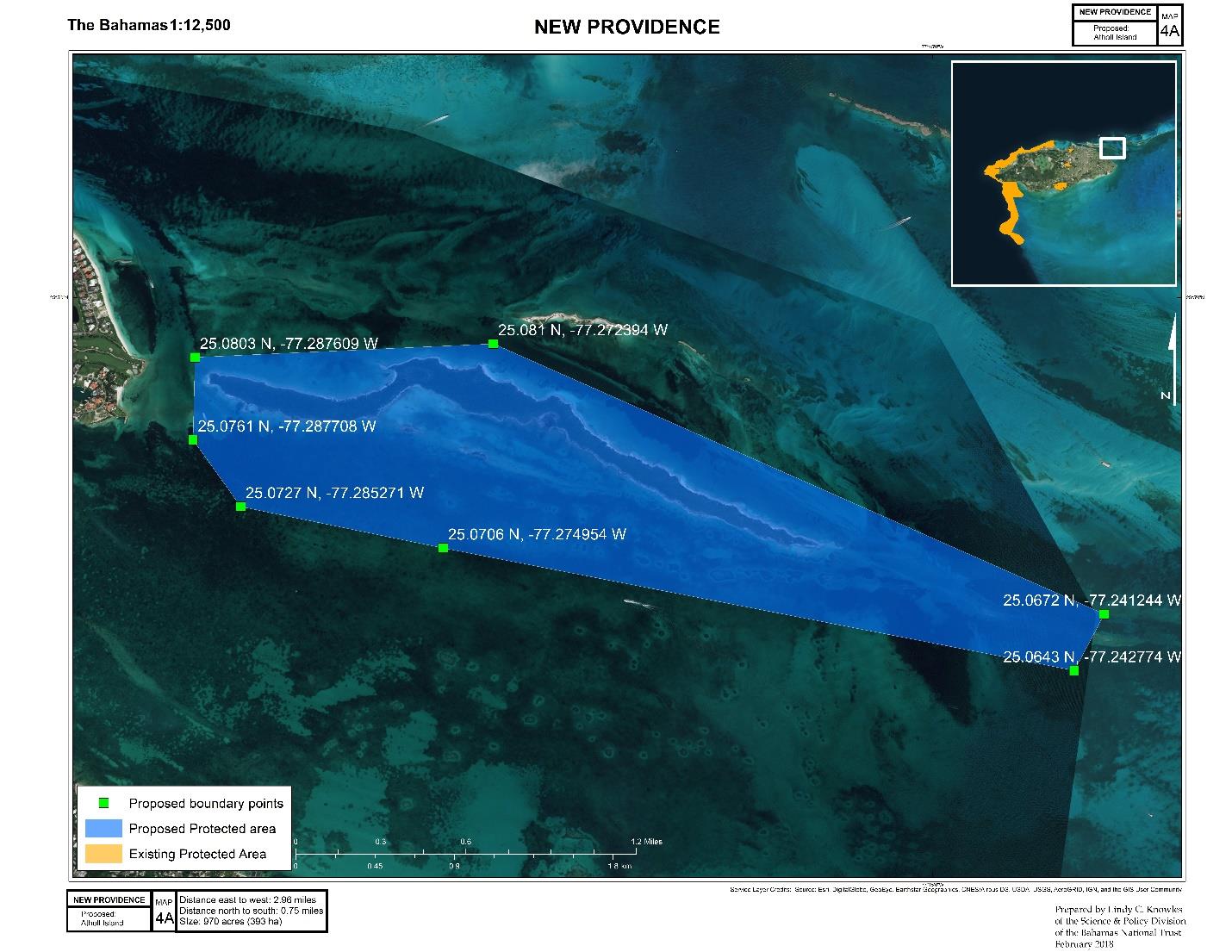BNT Continues to Recommend Protection for Athol Island

April 25th, 2022 – Nassau, Bahamas
Recent reports in the media of three proposed tourism developments for Athol Island have raised concerns over the future of the small barrier island which protects northeastern New Providence from storm surge. The Bahamas National Trust (BNT) does not support the development of this island and has been an advocate for its protection since 1982. Athol Island and its surrounding waters are of ecological and historical importance and hold economic potential for sustainable tourism ventures.
The island, though just two miles in length, boasts outstanding representative biodiversity. It provides habitat for many species of birds and several species of reptiles. The marine environment surrounding the island is shallow and consists of a mosaic of seagrass beds, patch reefs, and underwater communities that support stony and soft corals, fish and invertebrates.
Athol Island has a long history. In 1892, the waters to the west were designated as the very first marine protected area (MPA) in The Bahamas, known as Sea Gardens. It became a popular site for tourists to visit in glass-bottomed canoes. Previously, around 1860, a quarantine station was constructed to protect New Providence from ships whose crews carried yellow fever, smallpox, and other infectious diseases. The ruins of the quarantine station and a former lighthouse remain, and provide great opportunities for eco-friendly tourism.
In 2016, The BNT collaborated with The Nature Conservancy and The Bahamas Reef Environmental Educational Foundation (BREEF) to implement The Bahamas Protected Project – a three-year initiative to support the Government of The Bahamas in meeting its commitment to the Caribbean Challenge Initiative and the United Nations Convention on Biodiversity. This commitment saw The Bahamas agree to effectively conserve at least 20% of our near-shore marine resources by 2020. In 2018, Athol Island was one of 43 areas proposed for protection and national park status in a formal submission to the government.
Athol Island provides amazing recreational opportunities for the people of New Providence, who have traditionally used it for camping and picnicking. New Providence residents have been vocal about the loss of public access to shoreline areas, and Athol Island provides an opportunity for small boats to make an afternoon getaway from Nassau.
According to BNT Executive Director, Eric Carey, “The BNT’s recommendation that Athol Island be designated a national park remains unchanged. We feel it is an ideal location to create a national park that is easily accessible for all to learn of its importance and enjoy the environment of The Bahamas with trails, signage, and mooring buoys. Its unique location would provide opportunities for eco-tour operators, and it is a place where Nassau residents can enjoy an off-island boating experience. We don’t want to lose it.”
The BNT notes that a public meeting on this project was held just before the start of the Easter holiday. Members of the public are still invited and encouraged to send their comments to the Department of Environmental Planning and Protection (DEPP), sharing any concerns they may have about this development; or to offer support for the designation of Athol Island as a national park for all Bahamians to enjoy.
To learn more about the role the BNT plays to manage terrestrial and marine national parks, protect species that inhabit them, and inform environmental policy, please visit its website: www.bnt.bs and follow/subscribe to various social media channels: Facebook, Instagram, Twitter, and YouTube.
###
Media Contact: Leah Carr | lcarr@bnt.bs | (242) 429-7902
About the BNT:
The Bahamas National Trust (BNT) was created by an Act of Parliament in 1959 to build and manage the national park system of The Bahamas. Possibly the only non-governmental organization in the world charged with such a responsibility, the BNT works daily to conserve and protect the natural resources of The Bahamas through stewardship and education for present and future generations. There are currently 32 National Parks managed by the BNT with more than 2 million acres of marine and terrestrial areas protected.
JUST RELEASED: BNT’s 2021 Impact Report